Celebrating the Chrysler Centennial at Old Car Festival 2024
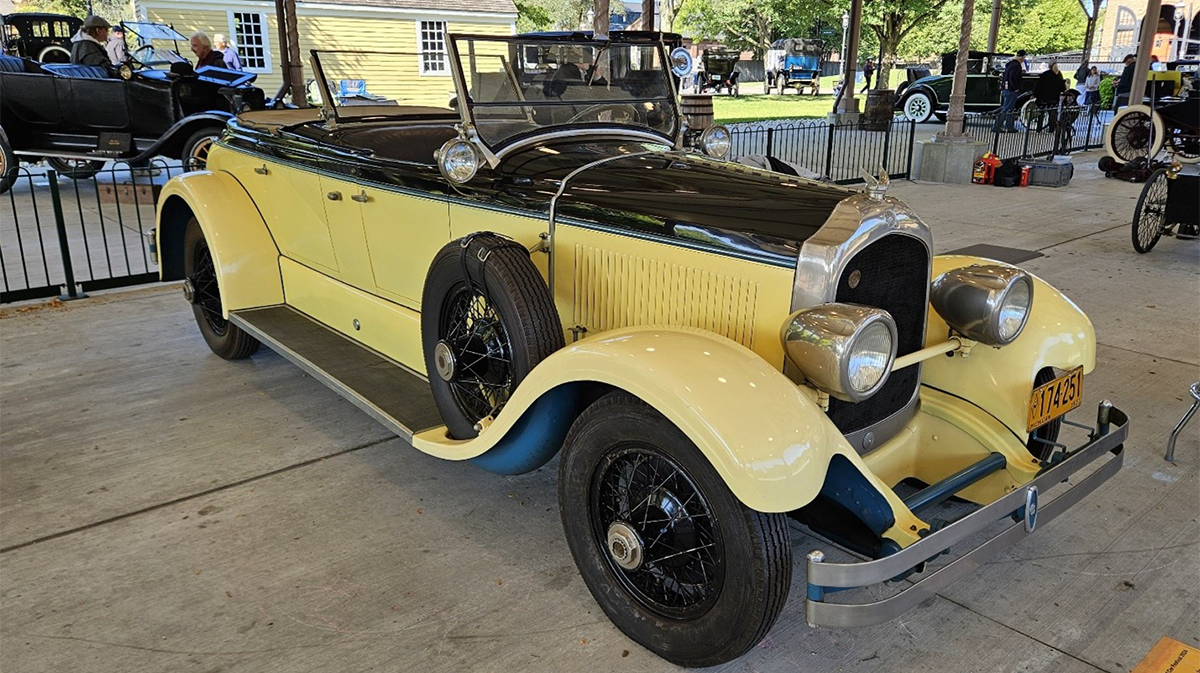
Chrysler cars, like this 1927 Imperial Sportif from The Henry Ford’s collection, were honored at this year’s Old Car Festival. / Photo by Matt Anderson
Automotive enthusiasts, history lovers, and folks just looking to have a good time descended on Greenfield Village on September 7-8, 2024, for Old Car Festival, our annual celebration of early American motoring circa 1900 to 1932. Nearly 750 cars, trucks, motorcycles, fire engines, and bicycles gathered for the show favored with sunny skies and fall-like temperatures. Attendees enjoyed good food, entertaining music and programs, and the incomparable kinetic energy of all those early gas, steam, and electric vehicles motoring through the village.
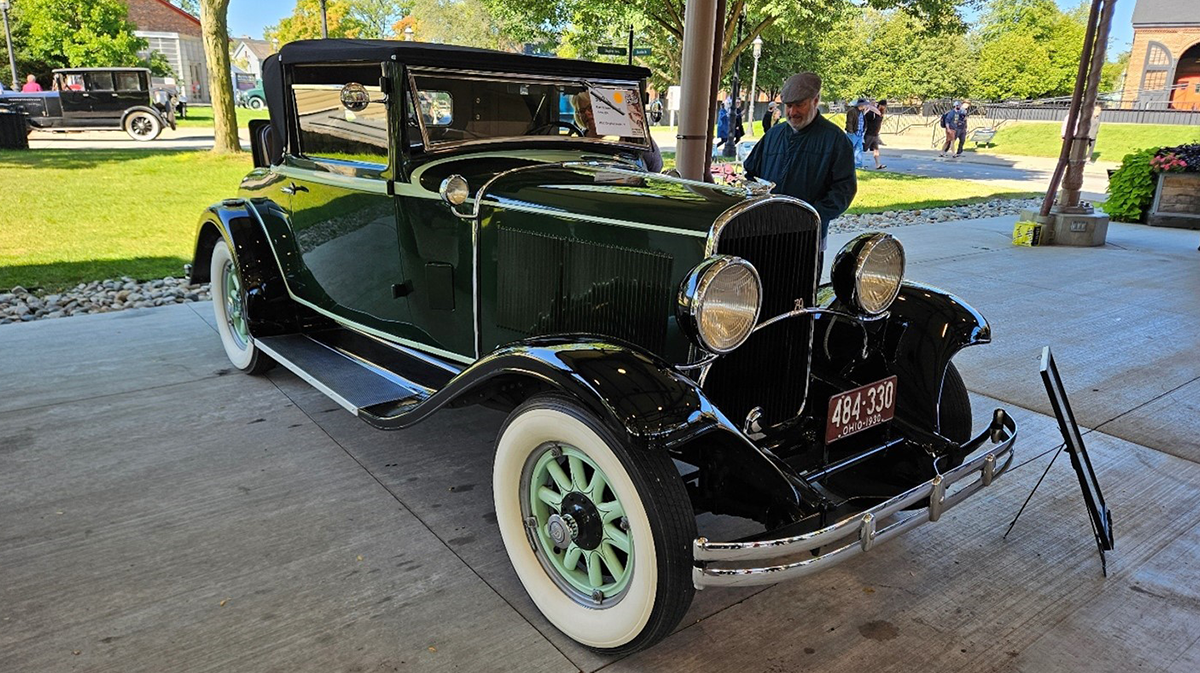
This 1930 Chrysler Series 70 was among the vehicles highlighted in Detroit Central Market. / Photo by Matt Anderson
Each year at Old Car Festival we honor a specific make or model, or we celebrate a significant anniversary. Considering that Walter P. Chrysler introduced the first Chrysler-badged cars in 1924, the Chrysler Centennial was an obvious choice for our 2024 theme. Chrysler got his start as a railroad machinist, but his abilities and industry contacts led to a job as Buick’s production head in 1911. Chrysler grew frustrated with General Motors boss William C. Durant – who enjoyed building corporations more than cars – and left in 1919. Never one to sit still, Chrysler reinvented himself as a turnaround manager, first at ailing Willys-Overland then at Maxwell. Chrysler effectively transformed Maxwell into his own Chrysler Corporation, and within five years he expanded it into a full-line automaker by purchasing Dodge Brothers and introducing mid-priced DeSoto and low-priced Plymouth.
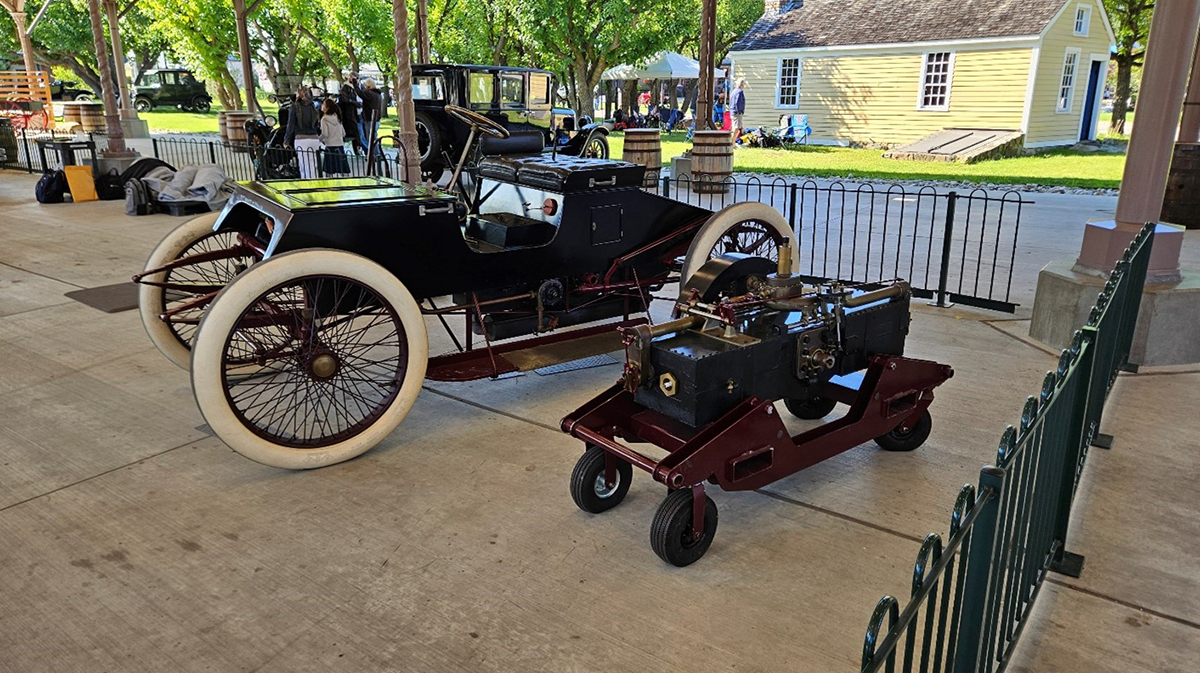
Our operating replica of Henry Ford’s 1901 “Sweepstakes” race car was in Detroit Central Market, alongside a separate copy of its 2-cylinder, 539-cubic-inch engine. / Photo by Matt Anderson
We honored Chrysler the man as much as Chrysler the company with a display in Detroit Central Market that covered all phases of his career. Several Old Car Festival participants kindly lent their own cars to the exhibit including a 1913 Buick 31, a 1920 Overland 4, a 1925 Maxwell 25-C, and various Chrysler models from 1927 to 1931 (including The Henry Ford’s own 1927 Chrysler Imperial Sportif). The special display was rounded out with a 1931 Plymouth PA and a 1932 Dodge Brothers DL.
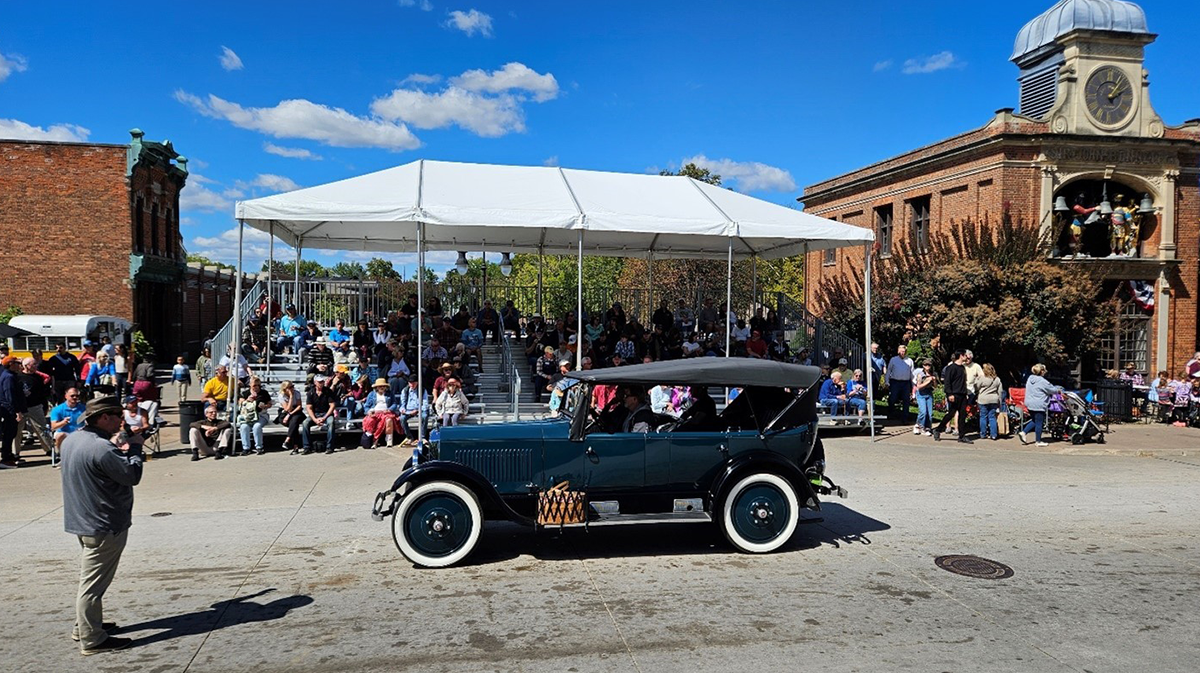
Narrated pass-in-review sessions provided a moment in the spotlight for participating cars, like this 1923 Studebaker Big Six. / Photo by Matt Anderson
For those who preferred to let the action come to them, Old Car Festival included several pass-in-review programs on Saturday and Sunday. Attendees could grab a seat in the bleachers and listen as experts like Andrew Beckman, archivist at the Studebaker National Museum, and Derek Moore, curator of collections at the Lane Motor Museum, provided commentary on passing vehicles. Folks interested in pedal-powered transportation could listen as bicycle historian Bill Smith narrated programs featuring high-wheel and safety bikes from the mid-19th century into the early 20th century.
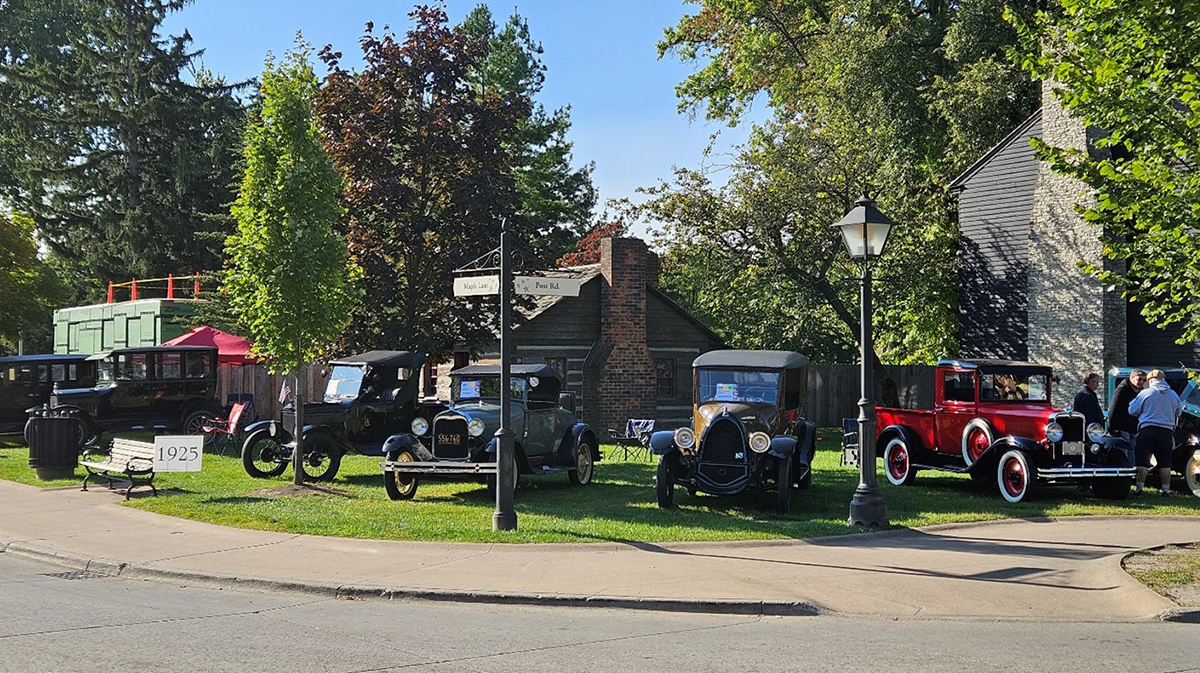
The corner of Maple and Post hosted a Ford Model T pickup and Model A roadster alongside a 1925 Franklin sedan and a 1931 Chevrolet pickup. / Photo by Matt Anderson
Beyond pass-in-review, the weekend included two special presentations in Martha-Mary Chapel. Bob Casey, retired curator of transportation at The Henry Ford, spoke about Fred Zeder, Owen Skelton and Carl Breer, the “Three Musketeers” who designed the first of Walter Chrysler’s eponymous cars – and many more thereafter. Andy Dervan, a volunteer with our Benson Ford Research Center, presented on Ford Times, Ford Motor Company’s promotional magazine published from 1908 to 1917. Meanwhile, roadside America historian Daniel Hershberger literally set up camp near Scotch Settlement School where he presented on early auto camping throughout the weekend.
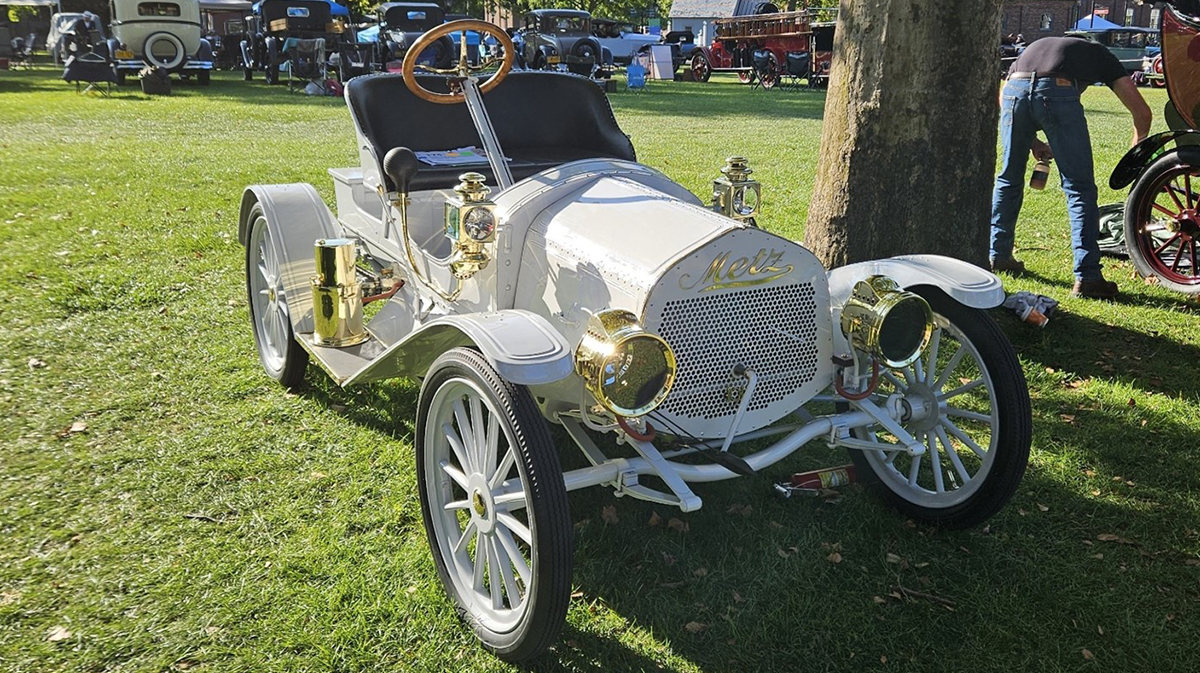
Acetylene lamps like those on this 1911 Metz lit the way during the Saturday evening gaslight tour. / Photo by Matt Anderson
Saturday evening brought its own special magic with a concert of period music by the River Raisin Ragtime Revue, and the ever-popular gaslight tour in which cars ignited their vintage acetylene lamps and paraded through the twilight. The evening festivities concluded with a Dixieland-style parade to the exit gates led by the Tartarsauce Traditional Jazz Band. Additional weekend music offerings included ragtime piano performances, blues from Rev. Robert Jones, vocal pop from the Village Trio and the Greenfield Village Quartet, and selections from the Masters of Music band and the Village Strings.
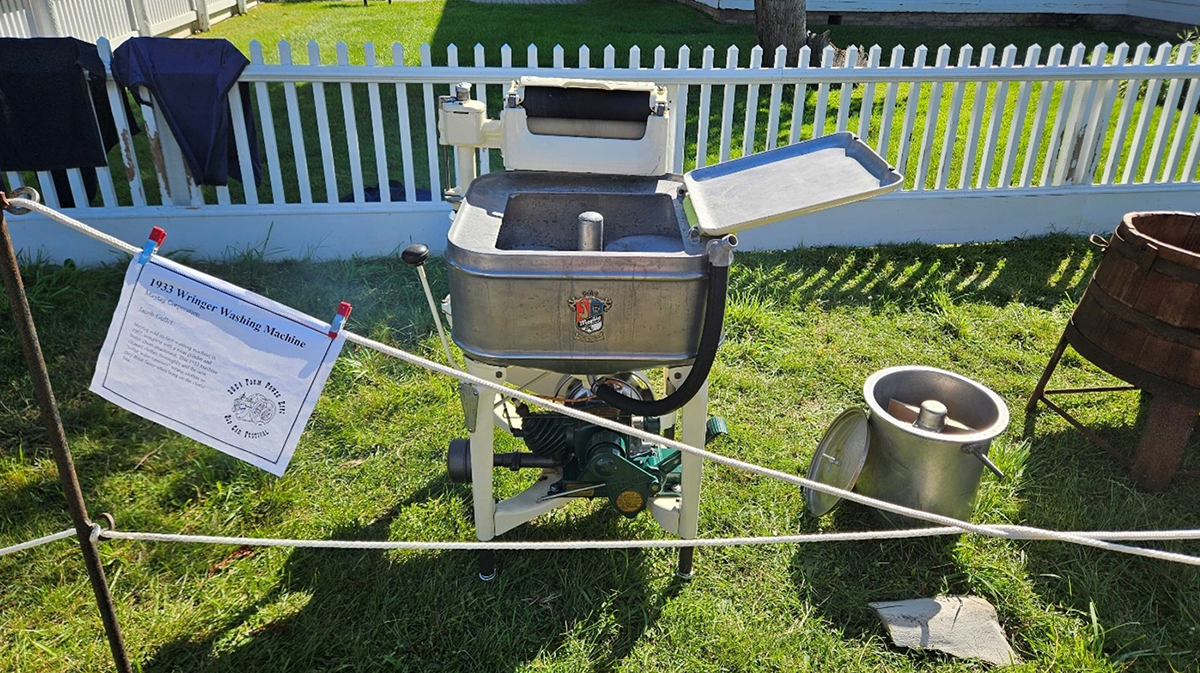
Small engines, including the one powering this early 1930s Maytag washing machine, were demonstrated at the Ford Home. / Photo by Matt Anderson
Automobile engines weren’t the only featured powerplants. Once again in 2024, the Early Engine Club put together a farm power expo at the Ford Home. Antique hit-and-miss engines, a Ford Model T powering small machines, and even a Model T converted into a tractor demonstrated the internal combustion engine’s abilities beyond motorized transportation. At the nearby Bagley Avenue Workshop, our own presenters regularly demonstrated a replica of Henry Ford's "Kitchen Sink” Engine, which powered Ford’s early ambitions toward automobile manufacturing.
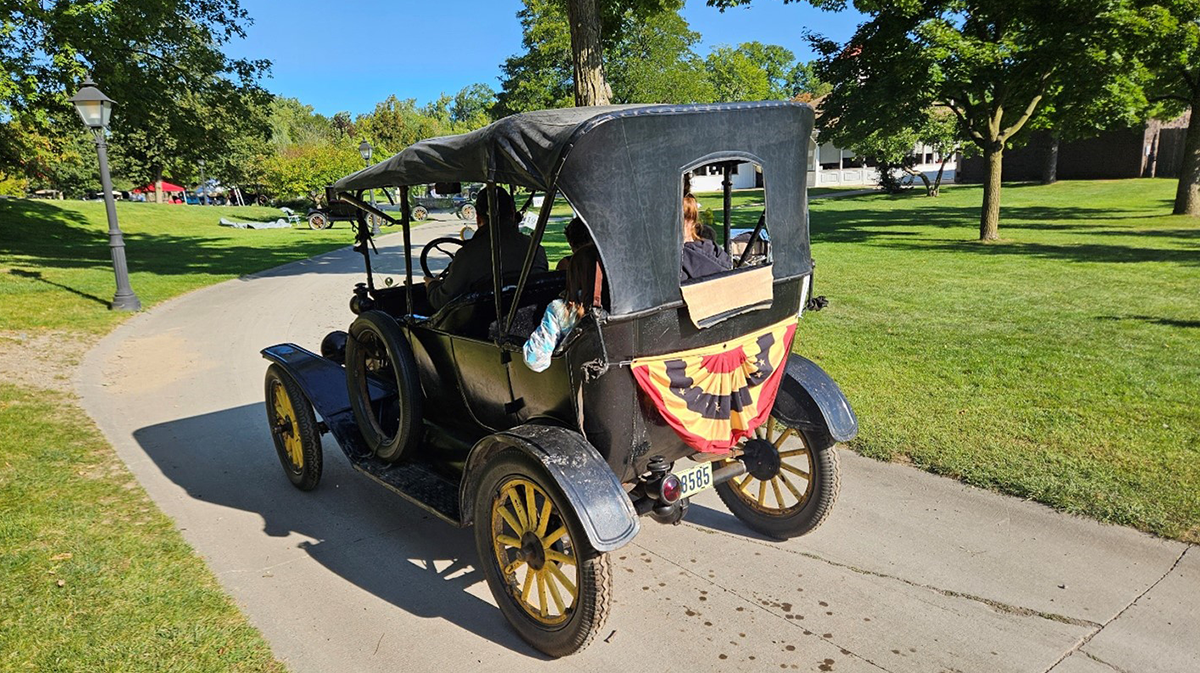
This 1916 Ford Model T, still running and still in the same family 108 years later, won a Curator’s Choice award. / Photo by Matt Anderson
As is a longstanding tradition, this year’s Old Car Festival included several cars that were judged for vehicle class awards based on authenticity, quality of restoration work, and care with which each car was maintained. First-, second-, and third-place prizes were awarded in eight classes, and one overall Grand Champion was selected for the festival. This year’s Henry Austin Clark, Jr., Grand Champion Award went to a 1932 Chevrolet Confederate Phaeton. We also presented two Curator’s Choice Awards to the best-preserved unrestored vehicles. Winners included a 1913 Oakland Model 40 Touring and a 1916 Ford Model T Touring. The complete list of our 2024 Old Car Festival award winners is available here
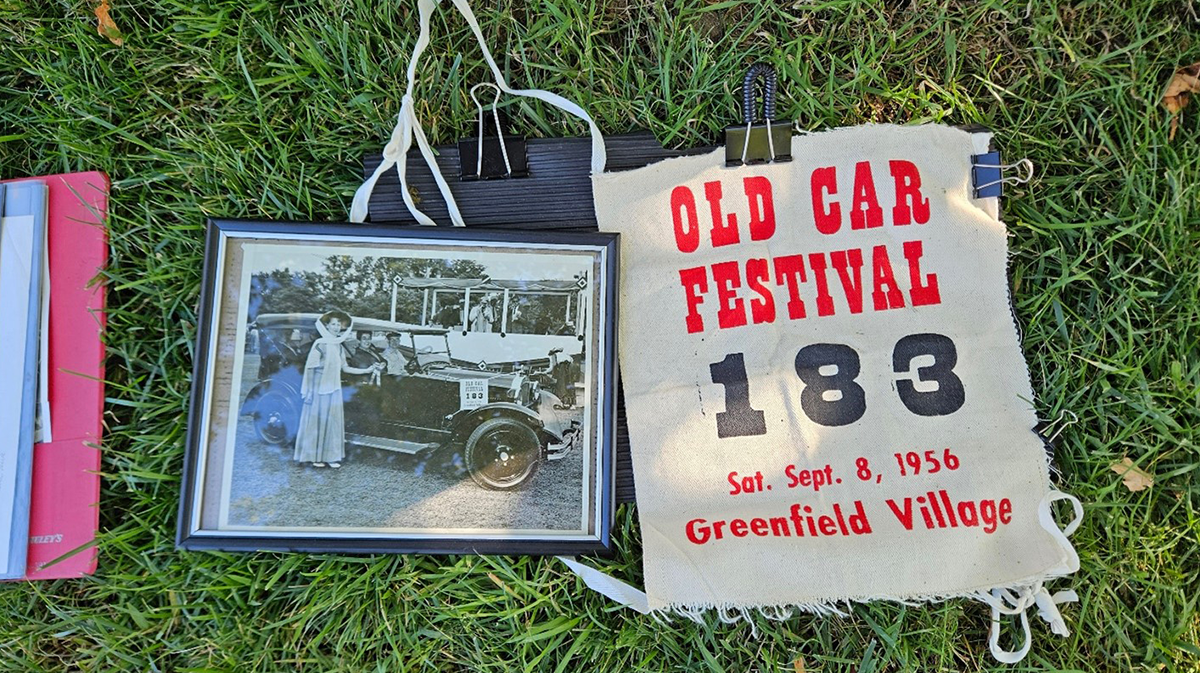
Old Car Festival is a tradition. This photo and banner are from the 1956 show, attended by a 1924 Dodge Brothers Series 116 that was here again in 2024. / Photo by Matt Anderson
We like to think that history comes alive in Greenfield Village every day, but rarely are the sights, sounds and smells of the past so fully resurrected as they are with the veteran motor vehicles of Old Car Festival. It’s an experience to savor year after year.
Matt Anderson is curator of transportation at The Henry Ford.

